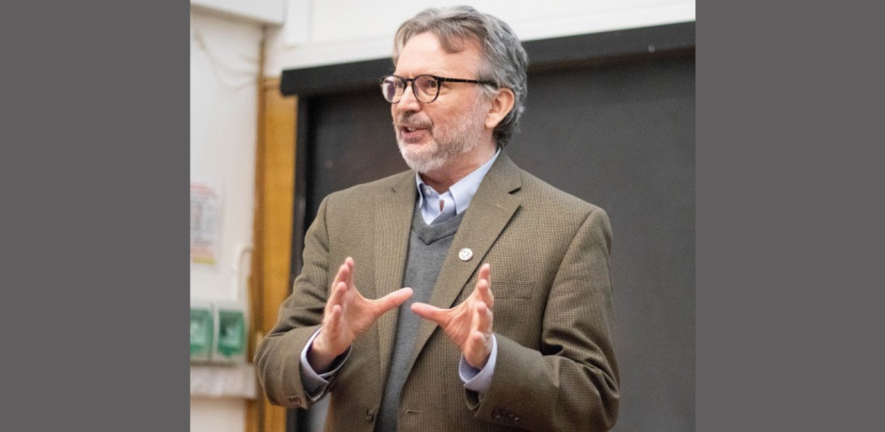
Submitted by Dr C.M. Martin-Jones on Tue, 28/05/2024 - 15:55
Congratulations to David Hodell, Woodwardian Professor of Geology at the Department of Earth Sciences, on being elected a Fellow of the Royal Society.
This year, over 90 exceptional researchers from across the world have been elected to the Fellowship of the Royal Society, the UK’s national academy of sciences.
David Hodell, who is Director of the Godwin Laboratory of Palaeoclimate Research and a Fellow of Clare College, was recognised for his invaluable contributions to the field of climate science.
“I’m over the moon to have been elected a fellow of the Royal Society,” said David. “It takes a community to do the type of field-intensive science I do. I owe a tremendous debt of gratitude to all those who have made my research possible over the years. This award is a tribute to their hard work and collaborative spirit.”
David's research extends from understanding the impact of past climate changes on the rise and fall of civilisations, to the record of Earth's climate over millions of years.
His work with Mark Brenner and Jason Curtis at the University of Florida, produced the first direct evidence of periods of aridity between 800 and 1000 AD, corresponding with the decline of the Classic Maya Civilization. And, in collaboration with PhD students Alena Giesche and Yama Dixit and Dr. Cameron Petrie in Cambridge’s Department of Archaeology at Cambridge, David has explored how climate change and environmental modifications affected the Bronze Age Indus Valley Civilization.
David's work has also significantly advanced our knowledge of long-term climate cycles and their relationship to past shifts in the geometry of Earth's orbit (the Milankovitch theory).
In 2022, David and his colleague Fátima Abrantes, from the Portuguese Institute for the Sea and Atmosphere, Portugal, were Co-Chief Scientists onboard the International Ocean Discovery Program (IODP) Expedition 397, which sampled over 6,000 metres of sediment from the Iberian Margin.
By collecting cores from different water depths across the Margin, the project aims to investigate how deep-ocean circulation and chemistry changed in the past, including its role in deep-sea carbon storage and atmospheric CO2 changes.
The cores will shed new light on the growth and decay of large ice sheets over the last 3 million years and provide a glimpse into a warmer world before this time, when atmospheric CO2 was similar to today.
The importance of sediments from the Iberian Margin was highlighted by the late Professor Nick Shackleton and Dr Luke Skinner, whose seminal work revealed that proxy indicators of ocean temperatures contained within the marine record of the Iberian Margin mirrored those of the polar ice cores. Since then, those marine sediments have played a pivotal role in palaeoclimate research.
Congratulations again to David on this well-deserved honour.
Read more about IODP Expedition 397 here.
Feature image credit: Greg Palmer.
